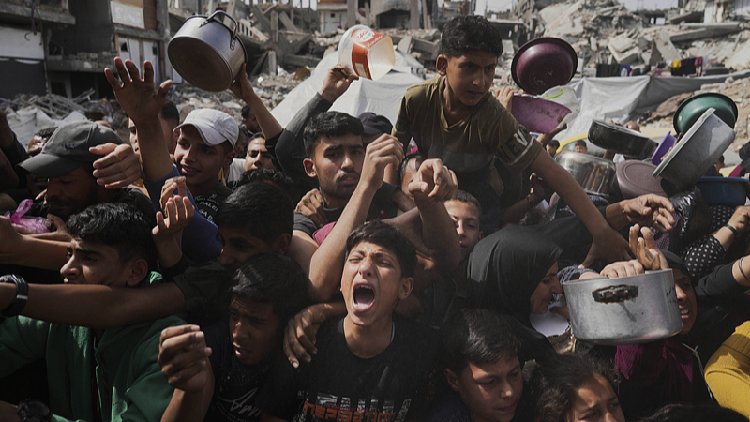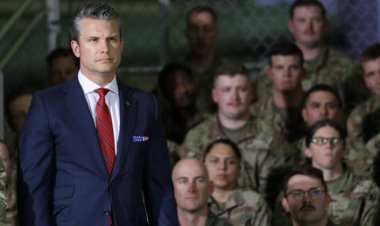U.S. and Israel talk about Gaza while France, Egypt, and Jordan advocate for ceasefire
U.S. President Donald Trump and Israeli Prime Minister Benjamin Netanyahu held a meeting at the White House on Monday to address the Gaza hostage crisis. Meanwhile, Egypt, France, and Jordan issued a joint call for the restoration of a ceasefire in the Gaza Strip, emphasizing that governance of the territory should be exclusively under the authority of an empowered Palestinian Authority.

Following a two-month ceasefire that began on January 19, Israel renewed extensive air and ground operations in Gaza on March 18. The Israeli government stated that these strikes were a response to Hamas's refusal "to release our hostages," while Hamas accused Israel of intentionally breaching the ceasefire agreement and exacerbating tensions.
During a brief Oval Office session that reporters attended, Trump identified the release of hostages held in Gaza as a "top priority." He conveyed optimism regarding the ongoing negotiations but did not share specific information.
"We're making progress," Trump said. "I believe we'll see all the hostages home soon."
Netanyahu echoed Trump's sentiments, underlining Israel's determination to secure the hostages' release. They also discussed the tenuous ceasefire between Israel and Hamas, reiterating the importance of minimizing violence in the region without announcing new agreements.
Originally, the White House intended to hold a joint press conference but subsequently canceled it without providing an explanation. Instead, reporters had the opportunity to pose questions during their limited access to the Oval Office meeting.
Trump did not unveil any long-term strategies for Gaza's reconstruction in this meeting, despite his administration previously proposing contentious ideas for the area, which have attracted criticism from various factions.
On the same day, a trilateral summit took place in Cairo, gathering Egyptian President Abdel-Fattah al-Sisi, French President Emmanuel Macron, and Jordan's King Abdullah II. The leaders urged for the enactment of the ceasefire agreement established on January 19, which called for the release of all hostages and detainees and the assurance of their safety.
They stressed that the protection of civilians and humanitarian workers, along with ensuring unrestricted access to aid, are obligations that must be honored under international law and humanitarian standards.
The trio expressed deep concern over the worsening humanitarian conditions in the West Bank and East Jerusalem. They called for an end to all unilateral actions that threaten the viability of a two-state solution and escalate tensions, emphasizing the importance of respecting the historical status quo at Jerusalem’s holy sites.
The leaders collectively rejected the displacement of Palestinians from their lands and any attempts to annex Palestinian territory. In this context, they called for international backing for the Gaza Reconstruction Plan, which was adopted during the emergency Arab Summit in Cairo on March 4 and discussed further by the Organization of Islamic Cooperation on March 7. They also considered the need for a June conference, co-chaired by France and Saudi Arabia, to clarify the political framework for implementing the two-state solution.
According to health authorities in Gaza, 56 people were killed and 137 others injured in the last 24 hours, raising the totals to 1,391 fatalities and 3,434 injuries since March 18. Overall, the death toll in Gaza has reached 50,752, with 115,475 reported injuries since the commencement of Israeli military operations in the enclave on October 7, 2023.
In a joint statement released on Monday, the heads of six United Nations agencies called on the international community to take urgent and decisive action to restore a ceasefire in Gaza, ensure unrestricted humanitarian access, and protect civilian lives. They warned that for over a month, no commercial or humanitarian supplies have entered Gaza, where more than 2.1 million people remain trapped under continuous bombardment and severe shortages. Critical aid—including food, medicine, fuel, and shelter materials—continues to accumulate at border crossings, unable to reach those in dire need.
Emily Johnson contributed to this article for TROIB News












